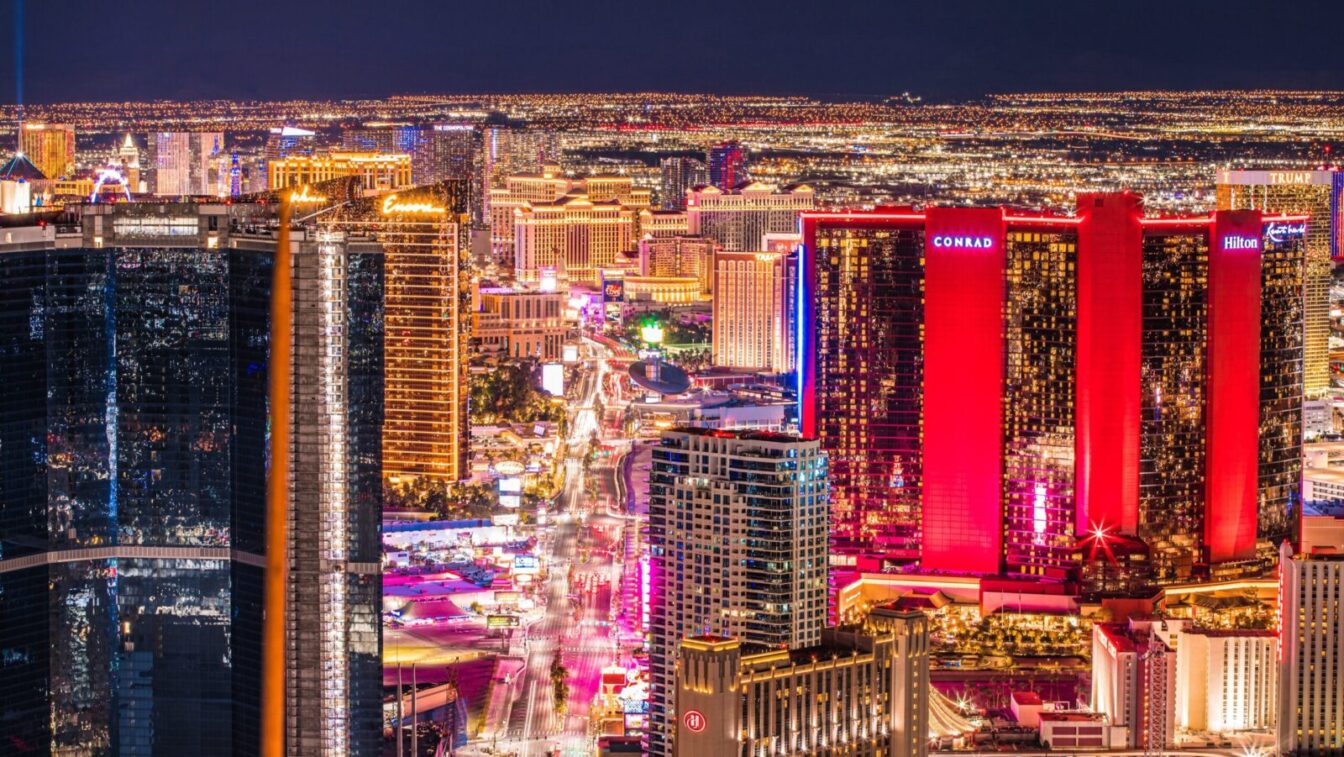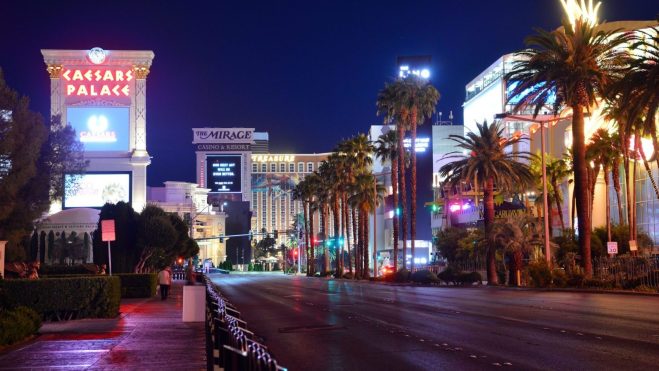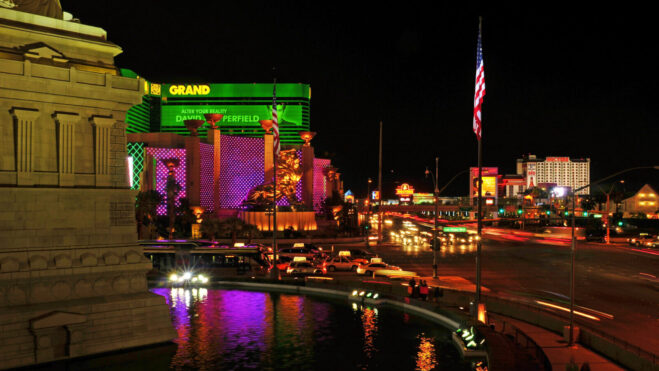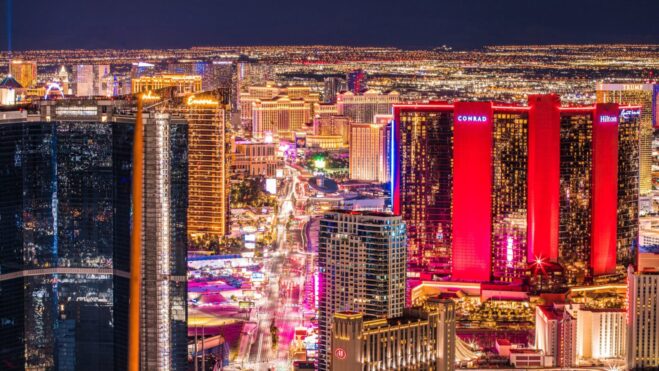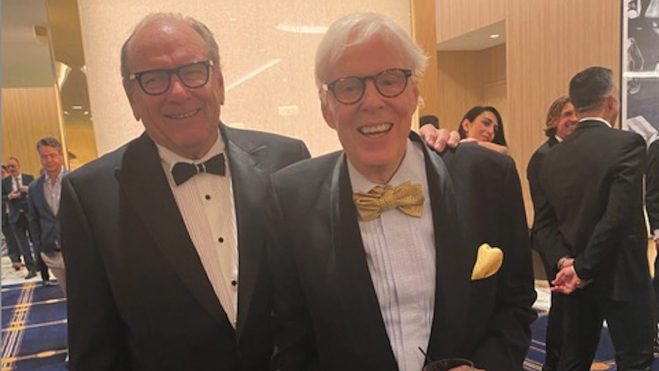Schuetz: These Nevada Gaming Commission Meetings Are Getting Embarrassing
To this old student of gaming regulation, Nevada’s regulatory assets have become unrecognizable
8 min
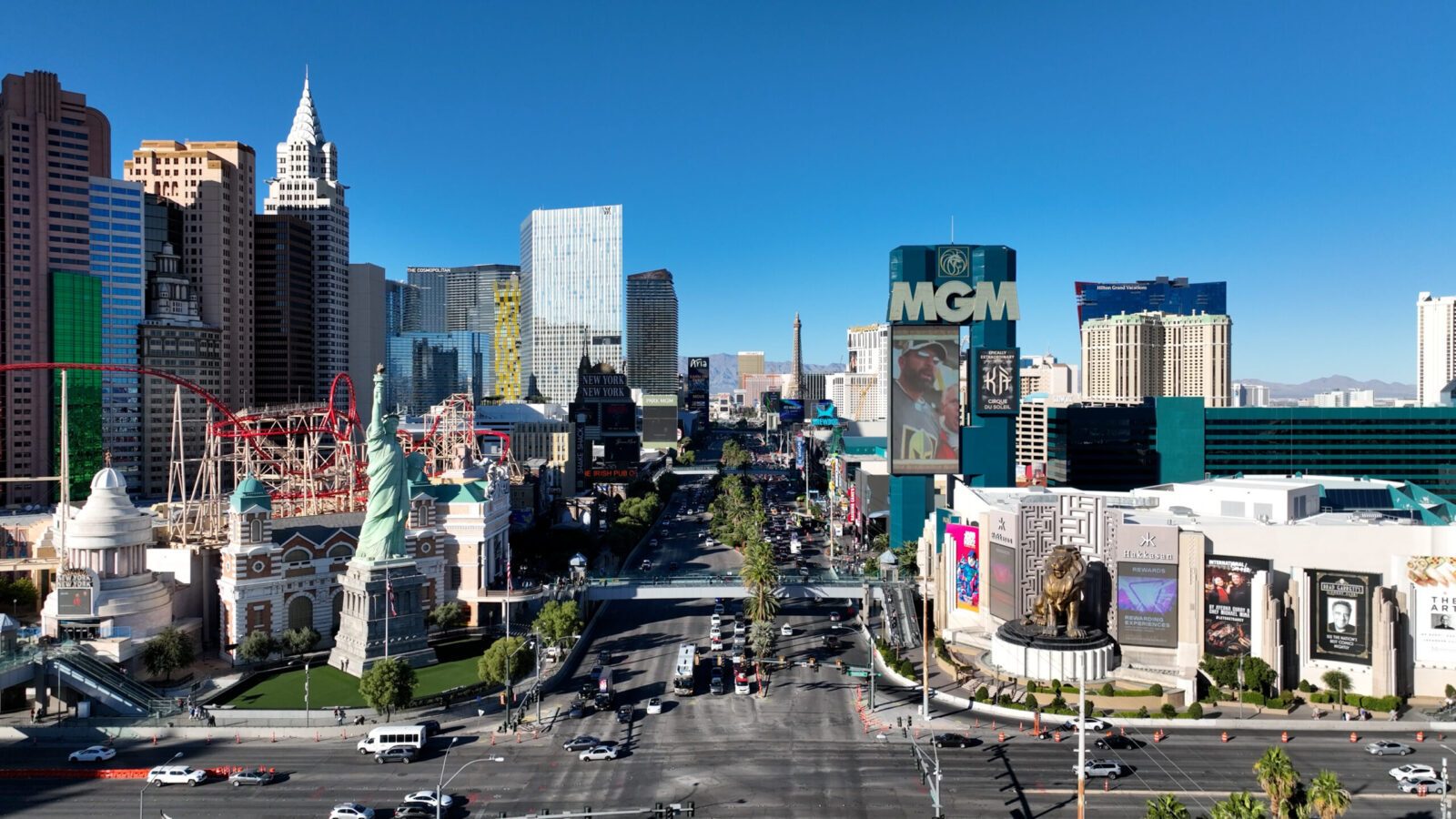
“As a rule, regulation is acquired by the industry and is designed and operated primarily for its benefit.”
— Nobel Prize-winning economist George Stigler, 1971
I purposely avoided watching the Nevada Gaming Commission meeting on April 24, for I had much else to do.
I then noted a post on X by a writer and thinker I admire:
Later in the day, I received an email blast from a Nevada publication, and it included a quote by Hugh Jackson that also discussed the commission meeting, and in particular, the behavior of Commissioner Brian Krolicki:
“Krolicki evidently believes that the chief requirement and purpose of that position is to suck up to MGM Resorts International as hard and obsequiously as a former lieutenant governor can possibly suck up to the most powerful corporation in the most powerful industry in the state.”
I then understood that I would have to watch the stream. And from that experience, I agreed with both of the above comments.
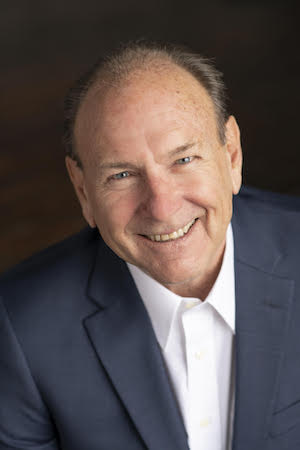
I do not know where to start. This will be the first of several articles on this meeting, for what happened at that meeting was important. Nevada’s gaming regulatory assets have become unrecognizable to this old student of gaming regulation.
I want to note that the meeting was supposedly about an illegal bookie from California who visited the MGM and its subsidiaries over 400 times, and “transported the cash in duffel bags, brown paper bags, or leather purses.“
Another globally infamous bookie from California was noted to have visited over 300 times to wager. This gentleman’s activities took place between 2014 and 2018 and involved millions and millions of dollars. The point is that this was not a small thing on some weekends, but rather it went on for years. Moreover, the MGM personnel flagged this last dude as early as 2015, and the company did nothing until 2018.
The MGM compliance programs were so out of whack that the federal government insisted they needed to increase compliance spending by $750,000 over two years to avoid prosecution. And this came about just last year. That, friends, is not a ringing endorsement of the MGM’s compliance regimen.
One also wants to remember that this meeting occurred because of a federal action, understanding that the Nevada regulatory assets missed it the first time, and even attached the federal documents to their complaint.
Yet, the meeting I listened to indicated that there was little to see here besides an issue related to a bad actor or two. And wasn’t the MGM doing an outstanding job? To this day, I wonder if all the commissioners read all the documents. From an old casino guy’s perspective, the MGM was out of control, which could have been discovered by a blind man on a dark night. And yet it seemed the commission didn’t have a hint.
Crazy.
Your man on the inside
Let’s back up a couple of decades. In several documents used by the Nevada Gaming Control Board regarding transgressions in anti-money laundering protocols happening of late, the story is told as follows: Before July 1, 2007, Nevada regulators oversaw cash prohibitions, reports, and record keeping regarding casinos through Regulation 6A. As an aside, I was involved in the discussions in the 1980s that resulted in the development of Regulation 6A, and I can assure you that this effort was driven by a (very strong) desire to keep the feds away from the casinos.
Nevada could do this through an exemption that the U.S. secretary of the treasury could grant. And this happened, and Nevada was happy.
In the early 2000s, Nevada and the Financial Crimes Enforcement Network began discussing whether this exemption might not be the best solution. Nevada concluded that this responsibility was becoming “… an increasing and unnecessary burden.”
With this, the regulation of cash transactions, suspicious activity reporting, and AML programs was taken away from Nevada and placed back in the hands of the U.S. Treasury. This carried with it, however, the responsibility of Nevada casinos to know their customers, address the source of funds, and ensure other AML controls. (See here, page 5 and 6).
I bring this up because, as listed in the Investigative Report, dated 11/27/2013, prepared by the Massachusetts Gaming Commission on MGM, it is noted on page 61 that:
“For an 84 week period from May 2001 to early 2003, the Mirage Casino hotel in LasVegas, at the time one of the premium assets of MGM Resorts International (then known as MGM Mirage), failed to file 14,903 Currency Transaction Reports.”
The CTRs were part of the regimen of Nevada’s Regulation 6A. The point is that Nevada lost its 6A exemption and went back under federal control because Nevada was doing a piss-poor job of handling this responsibility. The failure of MGM to report the Mirage CTRs materially contributed to the feds’ loss of faith.
MGM’s failure to file these reports also resulted in the CFO’s firing (which he did not deserve), and he later won a $4.5 million judgment against the company. After the settlement, the ex-CFO argued the company had engaged “in a pretty good butcher job on me.” MGM also received a record fine of $3 million from the gaming commission.
The point is, Nevada lost its exemption because it had done a bad job, and the MGM Mirage led that march. Ironically, the feds were also the entity that busted MGM for its more recent failings, resulting in the Nevada Gaming Commission meeting, which is the subject of this article.
Understanding where I’m coming from
If people wonder why I have rather strong opinions about Nevada gaming regulation, allow me to explain myself to those who do not know me. In the 1970s, I spent over two years working on a Ph.D. dissertation in economics on the development of Nevada’s gaming regulatory model from 1945 to 1966. I was gifted during this time to travel throughout Nevada and beyond, talking to the likes of Sen. Alan Bible, Gov. Grant Sawyer, NGCB Chair Ed Olson, and on and on and on. I was also gifted with some incredible records and files, including a series of wiretaps by the FBI from the ’60s, and a great deal of material acquired from undercover operations by the Nevada Gaming Control Board (back in the day, some NGCB employees had a bad habit of picking up people’s trash).
This lived experience meant something to me then and means something to me now. I have long had a great deal of respect and admiration for many of the souls who made the gaming regulatory assets in Nevada something important.
The people I met were tough and smart. Nevada had little political clout (two senators and one congressman at the federal level). The Nevada regulators were taking on the best and smartest casino operators in the United States, who, unfortunately, were often mob-connected. They were also taking on an FBI that appeared corrupt and wanted to shut the state’s casinos down, and a society and national congress that looked down on gambling on moral and ethical grounds.
In their inimical way, a small group of Nevadans cleaned up gambling so that Nevada could offer something beyond tumbleweeds. They generally did a good job, and from my observations, worked tirelessly at it. Everything good about the Nevada experiment with gambling is built on this regulatory foundation.
I have also had the opportunity to work in the industry, from as a way to pay for my college by dealing cards and dice at night, up to being president and CEO of a Las Vegas casino company — and damn near everything in-between. I have worked around the globe, lectured extensively, and written about gaming often. I have also been a regulator (going through the revolving door backward) in two different jurisdictions. I have also submitted over 120 gaming applications with no problems, so I kind of get what regulation is about.
I am sorry for that detour. My point is that I have some opinions, and I feel that I have earned them.
From capture to closure
I objected to two significant things at that meeting on April 24. The first problem was that the commission showed many symptoms of being captured, as we say in economics. The second is that the commissioners had little understanding of how a casino operates and did not work to investigate this case. It seemed they were more interested in closure than answers.
Let me take the easier topic first. Casino compliance has become a department and methodology that is being studied, advanced, and preached by people with little idea of how a casino works. I hate to offer too strong a dose of reality here, but a good casino person can drive a truck through controls. If you have learned nothing else from what is happening lately at the MGM and Resorts World, you should have learned that reality. All those fancy rules, edicts, and committees were going about their business while the mice played. This is the reality you need to embrace, yet you seem to be losing this lesson.
Don’t believe me? Well, then what did happen at the MGM and Resorts World? When I read those reports, I was Amazed with a capital A. Those casinos were hijacked, and someone should have noticed that. Somewhere in the background, I am sure all those compliance people were cashing their payroll checks and were comfortable in their offices. The most crucial compliance safeguards on a casino floor are the people working there, and that starts with their character, honor, and integrity. That needs to become a focus.
As an aside, I would guess there is more bad news for another big casino coming. If I am reading the tea leaves successfully, the feds will likely be active in Nevada’s future. My prediction for the commissioners is that more rear-guard actions are on the horizon.
The issue I am addressing here is that compliance professionals do not necessarily understand how casinos work. Plus, they are generally not in the casino. That is a problem, and it needs to be fixed. One discipline operates in the make-believe world; one operates in the real world.
The second important issue that bothered me about the meeting on the 24th was that it sounded more like a public relations piece for the regulators and MGM.
Based on proxy statements, a board position for MGM will return around $400,000 to $500,000 annually. I get why regulators want to move on in their post-regulatory lives. One only needs to attend a regulatory meeting to find many ex-regulators practicing before these entities or involved in positions with the companies or their boards.
That is okay, if the regulators earned their chops by being good regulators, which means doing the job … not fawning over the people gathered before them.
Lowering standards
Nevada once had a reputation as the “gold standard.” Sure, there were problems, but the regulators generally worked to resolve them, not dance around them. They learned their jobs and worked to understand the industry’s reality.
That gold standard stuff was fun until New Jersey called Nevada’s bluff and would not license the MGM in Atlantic City because of Pansy Ho’s relationship with MGM in Macau, whereas Nevada seemed cool with that. The issues with New Jersey were that Pansy Ho was an MGM partner in Macau, and Pansy and her money were too closely attached to Stanley Ho, her father. It bears mentioning that Stanley’s name was commonly associated with organized crime. I mean, serious organized crime.
Following this, we started hearing echoes of the gold standard from the far reaches of New Jersey.
Today, we find a regulatory process ravaged by turnover, especially with the board. Soon, we will have the sixth chair for the Nevada Gaming Control Board since 2018. That is ridiculous. There also seems to be some mission creep, and since AG Burnett left the board in late 2017, the effort has been to talk a good game more than play a good game. Plus, most of the heavy lifting is being done by the feds, or some prominent newspaper reporters, as in the case of Steve Wynn.
More importantly, during the last few years in Nevada, many of the major players have made every appearance of not playing by the rules. Do note:
- On Sept. 6, 2024, the U.S. Attorney’s Office announced a $130 million forfeiture for Wynn Las Vegas illegally conspiring with unlicensed money transmitters.
- In 2024 and ’25, there was a major federal money laundering probe and a significant related state action against MGM.
- In 2024, a significant fine was imposed on Resorts World.
Moreover, there are indications that another casino may come into play regarding a laxity in AML with bookies, and an additional federal involvement with a large Nevada casino operation.
This, my friends, is not a good look for Nevada gaming, especially when Nevada entities are aggressively working to enter other domestic and international markets. A “gold standard” regulatory environment would speak well for Nevada entities and act as an endorsement. But that ship has sailed.
It would be important for the commission and board to stop trying to talk and act like they have a gold standard game and produce one. There are a bunch of people who have served before them who deserve better than what they are now getting.
But what do I know? I’m just an old casino guy.


